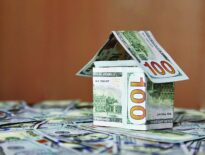State Lawmakers on Thursday advanced Boston Mayor Michelle Wu’s proposal to temporarily shift more of the property tax burden onto commercial real estate as she aims to avert potentially staggering increases that could hit homeowners.
The proposal cleared the Legislature’s Committee on Revenue a week after lawmakers raised questions about it at a hearing that featured the mayor and her administration officials testifying in favor while business groups registered their opposition. The bill is on the move as House and Senate lawmakers barrel towards July 31, the end of formal sessions for the year.
Wu’s proposal, which is moving quickly by State House standards, is now in the hands of the House Ways and Means Committee. The powerful panel is chaired by Rep. Aaron Michlewitz, a North End Democrat who is a close ally of the mayor.
Rep. Mark Cusack, the House chair of the Revenue Committee, who voiced skepticism about the bill at last week’s hearing, supported releasing it from committee on Thursday. “We’re allowing the bill to continue on in the legislative process,” he said when reached Thursday afternoon.
The mayor’s legislation still has a long way to go to become law. It has to make it out of Michlewitz’s committee, then be passed by the full House and Senate before heading on to the governor’s desk.
And the bill has to jump all those hurdles in less than a week while vying for legislative attention at a time when many, many bills are struggling to make it across the finish line. The list of bills in the legislative queue is long and includes expansive bills dealing with housing issues, economic development, climate change, and health care. Once formal sessions end, it can be difficult to move a bill, particularly a controversial one, to the governor’s desk, as a single lawmaker can slow it down through objections.
At the Revenue Committee hearing last week, business groups, including NAIOP Massachusetts, said property taxes fund nearly three-quarters of the city’s multibillion-dollar budget, and commercial real estate pays two-thirds, two-and-a-half-times the residential tax rate.
The proposal “would only drive up the cost of development and ownership of commercial real estate, making it highly unlikely we would see much new growth in Boston, which would only worsen the city’s fiscal challenges,” NAIOP’s CEO Tamara Small said in testimony last week.
But supporters of the measure said if the tax shift is implemented, commercial real estate owners will still see a tax decrease – it just won’t be as dramatic as they would’ve seen without it, while Boston residents won’t see a steep increase in their taxes.
The chief sponsor of the bill, Rep. Rob Consalvo, on Thursday pushed back on the argument from business groups that it would cause them major problems as the downtown area struggles with office vacancies and foot traffic that hasn’t recovered after the COVID-19 pandemic.
“At the end of the day we also represent our constituents, who are going to see a property tax increase either way,” he said. “So to be able to minimize the amount that they’re going to see, particularly the elderly, is huge.”
Consalvo represents Boston’s Hyde Park neighborhood and counts Wu, a Roslindale resident, as a constituent. Consalvo voted for a similar measure when he was on the Boston City Council 20 years ago. Then-Mayor Thomas Menino successfully lobbied the Legislature, and then-Gov. Mitt Romney, to approve the measure.
Consalvo appeared before the Revenue Committee with Wu and members of her administration.
“They asked tough questions, as they should,” Consalvo said of his colleagues on the Revenue Committee. “As I’ve talked to people, I’ve been able to provide information on it. At the end of the day, it’s a home rule petition. The City Council passed it, so it’s something that Boston has said they want and it’s something that’s important to them.”
This article first appeared on CommonWealth Beacon and is republished here under a Creative Commons license.![]()







